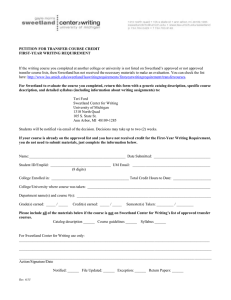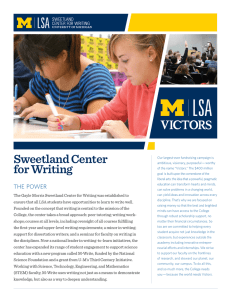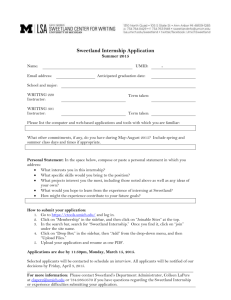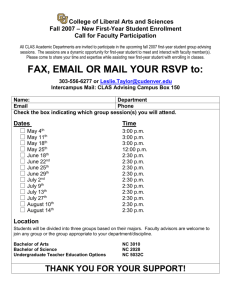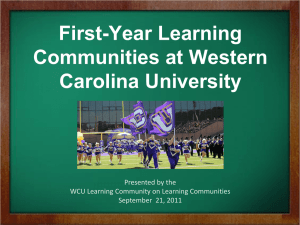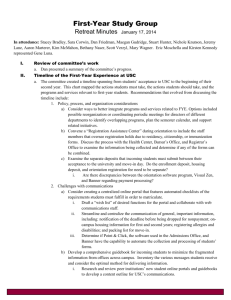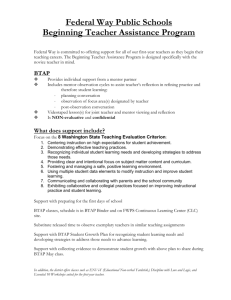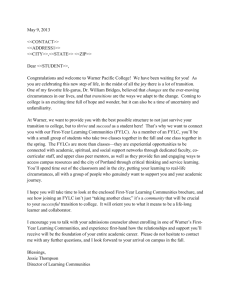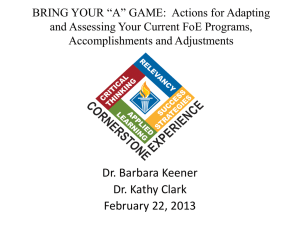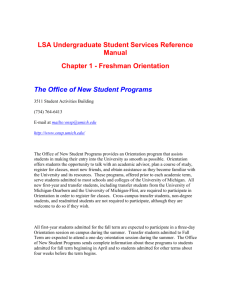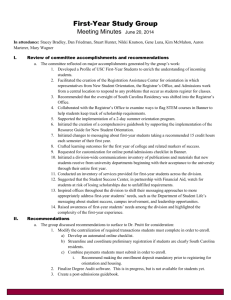Sweetland Center for Writing
advertisement
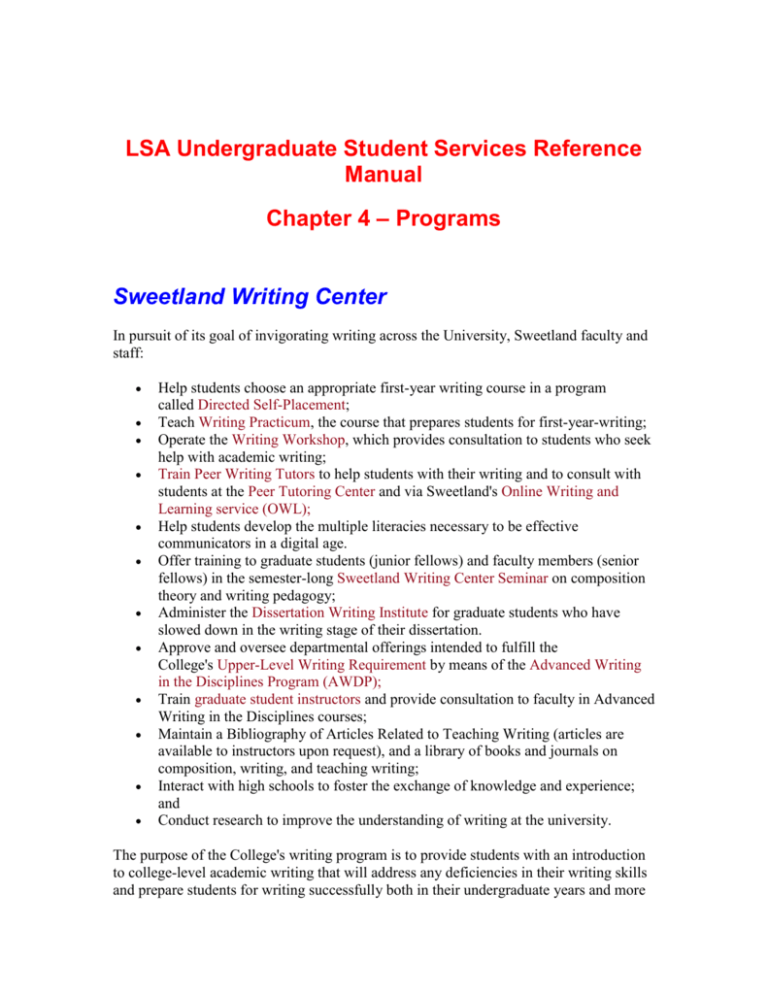
LSA Undergraduate Student Services Reference Manual Chapter 4 – Programs Sweetland Writing Center In pursuit of its goal of invigorating writing across the University, Sweetland faculty and staff: Help students choose an appropriate first-year writing course in a program called Directed Self-Placement; Teach Writing Practicum, the course that prepares students for first-year-writing; Operate the Writing Workshop, which provides consultation to students who seek help with academic writing; Train Peer Writing Tutors to help students with their writing and to consult with students at the Peer Tutoring Center and via Sweetland's Online Writing and Learning service (OWL); Help students develop the multiple literacies necessary to be effective communicators in a digital age. Offer training to graduate students (junior fellows) and faculty members (senior fellows) in the semester-long Sweetland Writing Center Seminar on composition theory and writing pedagogy; Administer the Dissertation Writing Institute for graduate students who have slowed down in the writing stage of their dissertation. Approve and oversee departmental offerings intended to fulfill the College's Upper-Level Writing Requirement by means of the Advanced Writing in the Disciplines Program (AWDP); Train graduate student instructors and provide consultation to faculty in Advanced Writing in the Disciplines courses; Maintain a Bibliography of Articles Related to Teaching Writing (articles are available to instructors upon request), and a library of books and journals on composition, writing, and teaching writing; Interact with high schools to foster the exchange of knowledge and experience; and Conduct research to improve the understanding of writing at the university. The purpose of the College's writing program is to provide students with an introduction to college-level academic writing that will address any deficiencies in their writing skills and prepare students for writing successfully both in their undergraduate years and more generally in future educational and professional settings. Underlying Michigan's Writing Program are several beliefs: that students need practice in order to learn to write well; that motivation is important, because writing is most readily learned through practice; that the desire to write can be motivated by the desire to learn, especially when students are learning what they want and need to know. These principles mandate more than a single course in composition for students; for the College, they mandate the involvement of faculty from all disciplines and departments in the teaching of writing. First-Year Writing Program The goal of the First-Year Writing Requirement is to teach students the discipline and skills needed for college writing. Without these skills, college students can find it difficult to master the art of argument and to achieve the academic sophistication that University of Michigan courses demand. First-Year Writing courses assign writing and revising tasks designed to help students learn to: summarize and characterize essays and nonfiction narratives; investigate issues through course readings and materials gathered through research; evaluate arguments; develop arguments, taking positions on issues and proposing solutions to problems; support arguments and state claims in one's own words; attribute ideas to their authors and cite sources; and use group resources to work collaboratively and to revise extensively. Students may satisfy the First-Year Writing Requirement by earning a course grade of Cor better in one of the following ways: Students may take the two-credit Writing Practicum (SWC 100/102) followed by an approved four-credit First-Year Writing course or Students may take an approved four-credit First-Year Writing course in the College The First-Year Writing Requirement should be completed in the first year. Upper-Level Writing Requirement The Upper-Level Writing Requirement (ULWR) is generally completed within the student's concentration and aims to help LSA students recognize and master the writing conventions of their chosen discipline, so that, upon graduation, they are able to understand and communicate effectively the central concepts, approaches, and materials of their discipline. AWDP is based upon the assumption that the best way to master disciplinary knowledge is to express that knowledge in the form of clear and incisive writing. Sweetland's Advanced Writing in the Disciplines Program (AWDP) approves departmental curricular offerings that satisfy the ULWR. A course approved to meet the requirement one term is not necessarily approved in subsequent terms. See the LSA Course Guide for the list of approved ULWR courses for any particular term. Writing Support Sweetland’s aim is to help writers become more confident, skilled, and knowledgeable about writing and the subjects they write about. Sweetland faculty and peer tutors supplement formal writing instruction by working, free of charge, with students to understand assignments, develop ideas, support arguments and claims, cite sources, and revise at the paragraph and sentence level. SOURCE: Sweetland Writing Center web site at http://www.lsa.umich.edu/swc/.
